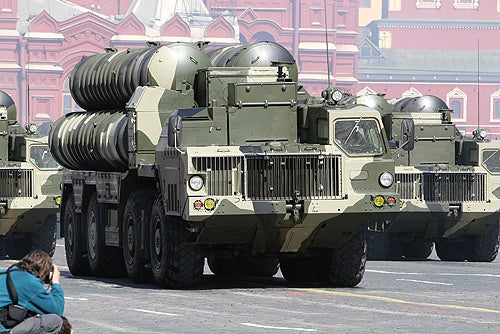
The Iranian ambassador to Russia, Mahmoud-Reza Sajjadi, has said Iran will withdraw its $4bn lawsuit against Moscow, if Russia honours the S-300 surface-air-missile (SAM) systems delivery contract, signed in late 2007.
Speaking to Russian Izvestia daily, Sajjadi said that Iran and the Russian Federal Service are likely to re-start discussions to sort out the issue.
How well do you really know your competitors?
Access the most comprehensive Company Profiles on the market, powered by GlobalData. Save hours of research. Gain competitive edge.

Thank you!
Your download email will arrive shortly
Not ready to buy yet? Download a free sample
We are confident about the unique quality of our Company Profiles. However, we want you to make the most beneficial decision for your business, so we offer a free sample that you can download by submitting the below form
By GlobalDataIran’s Ministry of Defence (MoD) and the Aerospace Industries Organization sued Russia’s state-arm-exporter Rosoboronexport in the Geneva International Court of Justice in April 2011, demanding the company either honour the contract or pay compensation.
According to Sajjadi, Iran had demanded compensation of $900m for Russia’s failure to honour the contract, but an additional $3bn was added by the court, bringing the claim to $4bn.
Tehran ordered a total of five S-300 systems from Moscow under an $800m deal in 2007, but the contract was cancelled by former Russian president Dmitry Medvedev following a fourth UN Security Council arms embargo on Iran in June 2010.
Moscow has already returned Iran’s deposit of $166.8m for the systems, but Iran maintains that the surface-to-air missile systems do not fall under the UN Security Council Resolution 1929.
The UN-imposed embargo banned the supply of missiles, missile systems, tanks, fighter helicopters, fighter jets and warships to Iran.
Code-named Favorite, the S-300 is a mobile, long-range air defence system designed to detect, track and destroy incoming cruise missiles, ballistic missiles and high and low-flying aircraft.
Developed by NPO Almaz Bureau, the high-precision missile system is capable of tracking up to 100 simultaneous targets from a distance of 150km.
Image: A Russian S-300 anti-aircraft missile system being displayed at a military parade in Moscow. Photo: courtesy of kremlin.ru.




